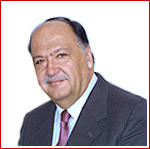| Thursday, January 22, 2004 |
| Entrepreneurship |
 I'm struggling with how to start thinking more like an entrepreneur. Like somebody who continuously sees opportunities and acts on them. Somebody who plays with ideas and resources and puts them together in new ways, and sticks with them until viable systems and organizations have been put in place. That could mean being a skilled business person who starts and runs businesses, but it doesn't have to. Has never worked very well for me to focus on money first, for one thing. Seems to be my lot to do good things that need doing and that leaves the world a little better, and then monetary resources and monetary rewards are a side-issue to that. Shouldn't stop me from being an entrepreneur, though. But it would be more in the social entrepreneur direction. Creating things that makes the world work a little better for people. I'm certainly not going to be the MLM type who pushes products I don't care about. Can't do that. But I wouldn't mind becoming comfortably wealthy. I'm struggling with how to start thinking more like an entrepreneur. Like somebody who continuously sees opportunities and acts on them. Somebody who plays with ideas and resources and puts them together in new ways, and sticks with them until viable systems and organizations have been put in place. That could mean being a skilled business person who starts and runs businesses, but it doesn't have to. Has never worked very well for me to focus on money first, for one thing. Seems to be my lot to do good things that need doing and that leaves the world a little better, and then monetary resources and monetary rewards are a side-issue to that. Shouldn't stop me from being an entrepreneur, though. But it would be more in the social entrepreneur direction. Creating things that makes the world work a little better for people. I'm certainly not going to be the MLM type who pushes products I don't care about. Can't do that. But I wouldn't mind becoming comfortably wealthy.
And, now, there are some ways that successful entrepreneurs, business people and social change activists would tend to think differently from your average 9-5 employee/worker person. The employee thinking is that you need to look good and do good work, and improve your skills and image so that you'll be more acceptable, and to always jockey for position so that you will look acceptable for a job higher in the hierarchy. Whereas the successful entrepreneur is more likely to look at what resources could be available and what one might do with them. And he'll have some kind of drive that will get him to keep at it until something works. Which might include changing strategies or environment or positioning or resources along the way, until it works. Whereas the employee person tends towards trying to keep things stable within a set environment. Many successful business people and self-made millionaires seem surprisingly to be not as smart as one might expect. Their initial idea might be mediocre. Like "sell my homemade cookies in the mall". But somehow they commit themselves to making it work, persuade others to go along with it, solve the problems that come up, adjust some details along the way. And once you're a 100 million dollar company everybody will think it was a brilliant idea. But what made it happen often isn't really the brilliance of the idea. Rather that it is a good idea, and somebody figures out how to make it happen and sticks with it. Often somebody who doesn't know that it isn't a brilliant idea, or who doesn't know it is impossible. I have done quite a few things that could have been the basis for a viable business or other type of viable organization. And I've been quite successful in several different arenas. And it is not like I haven't started good things that people sometimes were very happy with. But in a weird way I've always tended towards doing it more as a worker than as an entrepreneur. I do have certain leadership qualities, but usually in the sense that I inspire something to happen, and maybe take charge in solving a particular problem, but then I usually expect to sort of disappear and go back to work. Which gets me in trouble once in a while. I'll have to figure out how to apply my own particular style and skills towards successful ventures. An entrepreneur type of person is of course not just sitting waiting to be discovered, or just trying to do whatever is thrown his way. He'll go out and find opportunities, try to make them work, and if he keeps at it, some of them might actually work. But he's creating something new, bringing together the resources for making it happen, and testing it on the universe. I'm sort of trying to convince myself. Really, I'd much rather that I could just sit around and do my own thing, and the universe would just support me. And sometimes jobs feel like that. You just show up and the paycheck arrives every two weeks, no matter what you actually accomplish, within certain limits. So, I'm trying to overcome my own inertia and think differently. Trying not to be a perfectionist would probably be a good start. [ Diary | 2004-01-22 11:11 | 6 comments | PermaLink ] More > |
| The Power of Words |
 An old, but very inspiring, article in Fast Company about Fernando Flores and his style of working company executives into thinking and acting their job differently. Fernando Flores was Chile's minister of finance -- and, later, a political prisoner. Now he teaches companies how to use assessments and commitments to transform the way they do business. The outcome: executives who speak and act with intention. An old, but very inspiring, article in Fast Company about Fernando Flores and his style of working company executives into thinking and acting their job differently. Fernando Flores was Chile's minister of finance -- and, later, a political prisoner. Now he teaches companies how to use assessments and commitments to transform the way they do business. The outcome: executives who speak and act with intention.Fernando Flores is pissed off. He has had enough of the bullshit. The 55-year-old philosopher, former Chilean minister of finance, former political prisoner under Augusto Pinochet's rule, has flown halfway around the world, from California to Holland, to transform two executive teams -- 32 leaders in all -- of a global construction giant. These are people accustomed to building on a grand scale. But right now, building is their problem, not their business: Their world-class reputation for being brilliantly managed, it turns out, consists only of hollow words -- words that have little power and less value.Well, read the whole thing. A lot of us could probably use some of his medicine, even if it is doled out a bit hard-handed. The Magic of Transformation as they describe it. Thanks to Bala Pillai for mentioning this one. [ Organization | 2004-01-22 11:30 | 3 comments | PermaLink ] More > |